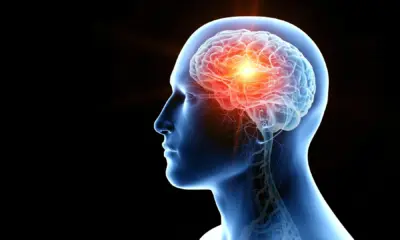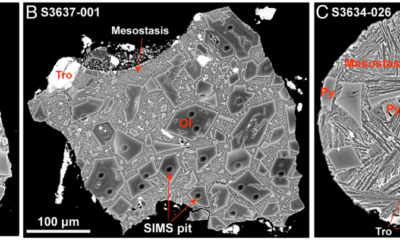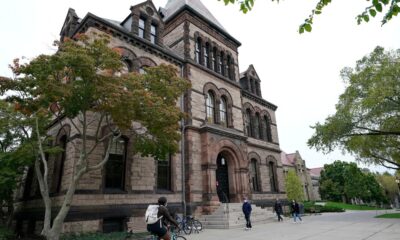Lifestyle
Nobel Prize in Economics Awarded for Insights on Innovation Growth

The Royal Swedish Academy of Sciences has awarded the Nobel Memorial Prize in Economics for 2025 to three prominent scholars for their groundbreaking research into technological innovation and its impact on economic growth. The laureates are Joel Mokyr, an economic historian at Northwestern University, along with economists Philippe Aghion from the London School of Economics and Peter Howitt from Brown University. Their work enhances the understanding of how innovation drives sustained economic prosperity.
Joel Mokyr received recognition for identifying the essential conditions necessary for long-term growth resulting from technological progress. His research delves into historical data, revealing the fundamental causes of enduring prosperity that can create a “new normal” within an economy. Mokyr emphasizes that for innovations to proliferate in a self-sustaining manner, it is vital to understand the scientific principles underpinning each successive discovery. He points out that historical periods, such as those before the Industrial Revolution, demonstrate how a lack of knowledge hindered the full potential of new inventions. Moreover, Mokyr underscores the necessity for society to be receptive to the adoption of new ideas.
Aghion and Howitt’s contributions stem from their collaborative development of a model for the concept of “creative destruction,” a phenomenon in which emerging, superior products or processes replace older ones in the market. This theory, rooted in the work of sociologist Werner Sombart from over a century ago and popularized by economist Joseph Schumpeter in the 1940s, remains relevant today. Their model has significant implications for understanding how innovation stimulates economic growth.
The rapid advancement of technology has created an environment where growth is not guaranteed. Until the last couple of centuries, stagnation was often the norm. Now, technological developments occur at an unprecedented pace, fundamentally reshaping the economy and society. The introduction of new products and methods inevitably displaces older ones, leading to unavoidable dislocations. However, these advances are essential to fostering sustained economic growth, which, in turn, contributes to improved living standards and overall quality of life.
Artificial intelligence (AI) serves as a prime example of a transformative technological advancement with the potential to enhance global prosperity. The discourse surrounding economic growth has been a focal point for economists over centuries, leading to numerous Nobel recognitions in the field. The insights from the 2025 laureates serve as a reminder that economic progress should not be taken for granted; ongoing technological advancements followed by creative destruction are vital for sustained prosperity.
The work of these economists resonates deeply in today’s rapidly evolving landscape, where innovation continues to redefine possibilities for businesses and individuals alike. Their research not only sheds light on historical patterns but also provides a framework for understanding contemporary challenges and opportunities in the realm of economic growth.
In conclusion, the Nobel Prize awarded to Mokyr, Aghion, and Howitt highlights the critical intersection of technology and economic development, emphasizing the importance of adaptability and knowledge in harnessing the full potential of innovation.
-

 Technology5 months ago
Technology5 months agoDiscover the Top 10 Calorie Counting Apps of 2025
-

 Health2 months ago
Health2 months agoBella Hadid Shares Health Update After Treatment for Lyme Disease
-

 Health3 months ago
Health3 months agoErin Bates Shares Recovery Update Following Sepsis Complications
-

 Technology4 months ago
Technology4 months agoDiscover How to Reverse Image Search Using ChatGPT Effortlessly
-

 Technology1 month ago
Technology1 month agoDiscover 2025’s Top GPUs for Exceptional 4K Gaming Performance
-

 Technology2 months ago
Technology2 months agoElectric Moto Influencer Surronster Arrested in Tijuana
-

 Technology5 months ago
Technology5 months agoMeta Initiates $60B AI Data Center Expansion, Starting in Ohio
-

 Technology5 months ago
Technology5 months agoRecovering a Suspended TikTok Account: A Step-by-Step Guide
-

 Health4 months ago
Health4 months agoTested: Rab Firewall Mountain Jacket Survives Harsh Conditions
-

 Lifestyle5 months ago
Lifestyle5 months agoBelton Family Reunites After Daughter Survives Hill Country Floods
-

 Technology4 months ago
Technology4 months agoHarmonic Launches AI Chatbot App to Transform Mathematical Reasoning
-

 Technology3 months ago
Technology3 months agoUncovering the Top Five Most Challenging Motorcycles to Ride





















